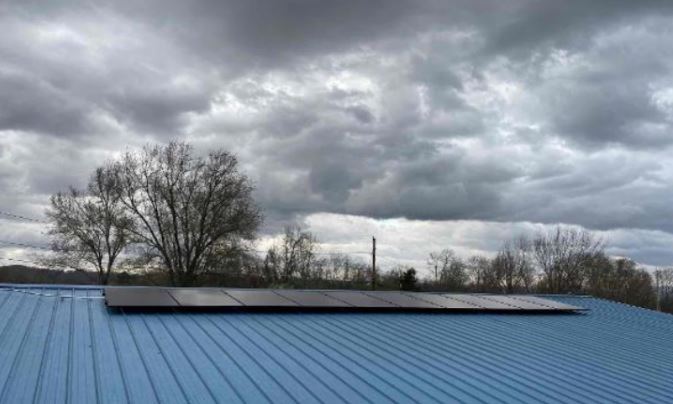
Last Updated on January 13, 2023 by Anne Brock
Looking at solar for your home or business? No, you won’t get big checks from your utility company. That’s just one of the myths floating around about solar energy. So we’re busting the top myths people hear about solar! Get the facts from Solar Alliance.
(Connect with Solar Alliance here.)
Myth: I’ll never have to pay a utility bill again.
Truth: Maintaining service with your utility is part of what makes conventional power plus solar energy such a clever combination. You will continue to pay some utility fees and may even need a large portion of power from the utility after installing your own solar. Adding photovoltaic modules is typically not a decision about solar energy vs traditional energy, but a way of including both options at the same time. Our goal is to lower your utility bill and overall energy expense.
Myth: Installing solar power means living off the grid.
Truth: Chances are your solar installation will be tied to the grid and this gives you the option to produce a portion or all of your own power, depending on a variety of conditions, as well as the option to rely on grid power for continuous service. When we help you develop microgrid power generation for more energy independence, this will still be in coordination with your local utility. The more independent you want to be, the bigger your budget should be. Microgrid power generation will include solar, battery storage and probably a generator.
Myth: The utility company will pay me for solar energy.
Truth: While some programs have existed that allow the sale of some power back to an electric utility, this is not applicable in every state. Even when this is allowed, it can be such a low rate that it is not advantageous to rely on this. Instead of anticipating the sale of energy from your panels, a more useful question to ask yourself is, “will solar panels save me money?”
Myth: Solar panels are too expensive for me.
Truth: Solar panels are more affordable than ever, with the cost dropping 70% since 2014. In many cases, solar energy helps lower your future energy costs in a predictable way, offsetting up-front costs. More and more often builders and customers are considering solar for new home construction, retrofitting a solar-powered warehouse or even agricultural solar panel systems. We always recommend a conservative estimate for anticipating solar panel payback. An apples to apples comparison we refer to as levelized cost of energy (LCOE). To determine the LCOE we take the capital cost less any incentives, divided by the total amount of kilowatt hours (kWh) the solar system will produce over the life of the system. In the majority of cases you will find the cost per kWh produced by solar is less than the retail price from the utility.
Myth: I can only go solar if I live in one of the hottest, sunniest places like Arizona.
Truth: Solar panels are rated to work even when the sun is shining a portion of the time. An honest estimation of solar power production at your particular site can help you know what to expect. A commercial solar company can show you how a solar power design of PV panels and battery backup can help account for times when there is less sunshine, storing energy you can use later. Here is a link to NREL’s PV Watts Calculator that is great for a rough estimate of the power that could be produced in your geographic area.
Myth: Solar is only for people who own their own home or have a lot of money to invest up front.
Truth: Community solar makes it possible for everyone to invest in solar, even if you rent your home or if you are not installing solar on your own. Instead, your utility company may have a way for you to subscribe to this renewable energy as a member of your local community solar project and receive credits on your utility bill each month.
Ask the experts at Solar Alliance today how to get started exploring your solar options.
